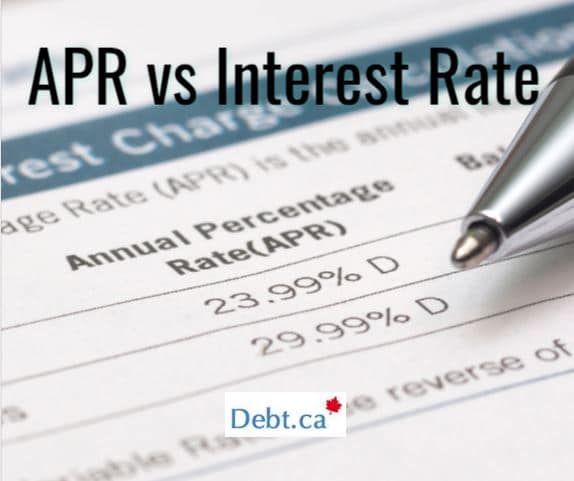It’s possible to survive when you have bad credit, but it’s tough and more expensive. Building credit helps you save money and makes many aspects of your personal finances easier.
What Is Credit?
Credit is borrowing money. A lender, like a bank, gives you access to funds you haven’t earned yet. Then, usually in monthly installments, you repay that money to the lender. The amount you borrow is called the principal amount.
To compensate the banks, or other lenders, for the use of the money, you pay an additional amount called interest. Interest is usually a percentage of the original amount (principal) over a certain period (usually yearly.) Interest is expressed as a percentage rate, like 5% or 15%, depending on the service.
The banks, and other lenders, need to know how likely it is you will pay back the principal and the interest. To simplify assessing that risk, you receive a credit score based on your previous financial behaviour or credit history.
Why Is It Important To Have Good Credit?
When you have good credit, you are considered a low risk for defaulting on your payments. Being a low-risk borrower means banks and other lenders are more likely to lend you money. It’s easier to get a credit card, a car loan, a mortgage, and other credit-based services.
Not only is it easier to get these services, but you also pay a lower interest rate. Just a fraction of a percent on a vehicle loan or a mortgage can make a huge difference to your payments!
What Does Credit Affect?
Many services rely on your credit rating to make decisions about you. For example, rental applications, cell phone plans, insurance and utility companies all assess your credit score. With good credit, you pay less interest, but you may also avoid having to pay a security deposit on your cell phone or hydro hookup.
A poor credit history typically means you’ll need to avoid a loan or credit card application. If you do apply, you may be turned down, or you may be offered a very high interest rate.
Having excellent credit doesn’t guarantee your approval because lenders consider other factors. That being said, good credit is always the place to start, no matter what stage of your life.
What Is A Good Credit Score?
In Canada, Equifax, one of two credit reporting agencies, says a good credit score is from 660 to 724. A very good credit score is between 725 and 759. A credit score over 760 is considered excellent.
Factors That Go Into A Credit Score
Your credit score is simply a number that combines several factors to reflect how well you borrow and repay money.
The most important factors affecting your credit score are:
- Your payment history
- How much debt you have
- How long you have had your credit
- New and recent credit
- The types of credit you use
The higher the credit score, the better!
Building Credit Dos
Improve your credit score with these tips:
- Pay your bills by the due date. Your payment history with hydro, your cellphone, car payments, and rent or mortgage all count. Set up direct bill payments from your account or at least create automatic reminders.
- Get and use a credit card. Pay your balance in full each month, but use it for expenses like buying gas, paying for your streaming service, and even groceries. Regular charges you pay off every month help build your credit.
- Pay those credit card bills on time. Paying your credit card accounts in full is best, but at least make the minimum payment on time. Many Canadians set up an automatic transfer for the minimum payment from their chequing account to the card. Then, you can manually make additional payments.
- Get your own credit. One spouse often has better credit, but don’t rely on that. Make a point to build both partners’ credit so borrowing together is cheaper and easier. You will both need to be on the mortgage, so when you both have good credit, you’ll get a better rate.
- Start early. Start soon. Start now. The length of your credit history is key to your credit score.
- Keep your balance low. Creditors like it when your total debt load is less than 35% of how much total credit you have available to you.
- Open a secured credit card that reports to the major credit reporting agencies.
- Ask someone to cosign for a credit account or an installment loan.
Building Credit Dont’s
Avoid these building credit don’ts to ensure you don’t damage your credit score.
- Don’t get in over your head. Be responsible and make sound decisions about your credit
- Avoid drawing cash advances from your credit cards. Use a personal line of credit with a lower interest rate for access to cash when you need it.
- Don’t apply for a bunch of credit all at once. Lenders assume you are not planning to live within your means if you make several credit applications in a short period of time.
- Use only one or two credit cards. Your record-keeping is more manageable, and it removes some of the temptation to abuse your credit.
- Watch the interest rates on your credit cards. If you must carry a balance, do so on the lower rate cards.
- Watch your debt-to-credit ratio, also known as credit utilization ratio. This is the amount of total debt compared to your total available credit. When your ratio is high, it indicates to lenders you’re a high-risk borrower. Keep your ratio below 35% on credit cards, loans and lines of credit. So, for example, if you have a $1,000 limit on your line of credit, only use $350 at a time.
- Remember that all your unpaid bills are reported to credit bureaus and will negatively impact your credit score.
Conclusion
These are some valuable tips to help you build your credit. Follow the building credit do’s and don’ts to increase your credit score.
If you find you need help keeping up with your payments, it may be time for some expert advice. Contact us today to talk to a credit counsellor about how you can build your credit for a stronger financial future.










